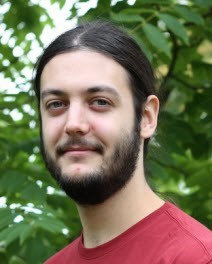Meet the Experts - Part 6

Dave Mills
Data Engineer, Statistics for Sustainable Development
Q1: Tell us a bit about yourself
I'm a Data Engineer with Statistics for Sustainable Development. I grew up in Reading, UK, and never got around to moving away. I was always interested in IT, and find the challenge of building useful data tools a good way of satisfying my love of puzzles. I've been working in data management for about 5 years.
Q2: Tell us about the section of the Data Tree course that you have developed
Module 4 aims to give you some practical tools to help you start to understand the stories that your data contain. Usually, this means understanding the shape of your data and the sources of variability within your data.
In the module, we will demonstrate the use of descriptive statistics to explore different datasets. We will also review hypothesis testing, and discuss the meaning of 'statistical' significance - and why it's not always the same as 'practical' importance.
If this sounds too much like statistics for you - don't
worry! The point of the module is to provide some core statistical tools to
help you with your research, without getting bogged down in formulae or heavy
mathematics.
Q3: Why is your section of Data Tree important for PhDs and ECRs?
This module is adapted from a course "Statistics Made Simple", originally developed to be a primer in practical statistics aimed specifically at non-statisticians who work with data.
As a researcher, you need to know how to do some statistical
analysis, and how to interpret results from those analyses. This module aims to
explain the statistics in ways that are meaningful to you, so you can make
informed decisions about what analyses to run and put the outputs in context of
your project, so they become more than just numbers to add to a report.
Q4: What’s your top tip for PhD students and ECRs starting out in their careers?
A general tip for any computer user - the “Save as” button
in many applications is a great tool. Use it regularly. Ideally, before you
start work on any file, take a copy of it, so you can always go back to the
original if you delete something important, or if the file gets corrupted
somehow.
Q5: If you weren’t a Data Engineer what would you be?
I’d definitely still be tinkering with interesting IT systems. I studied music technology at university, so I’d probably be a sound technician or recording engineer.
Find out more about Dave and his experience here:
LinkedIn: dave-mills-ssd/
Stats4SD : https://stats4sd.org/our-team/